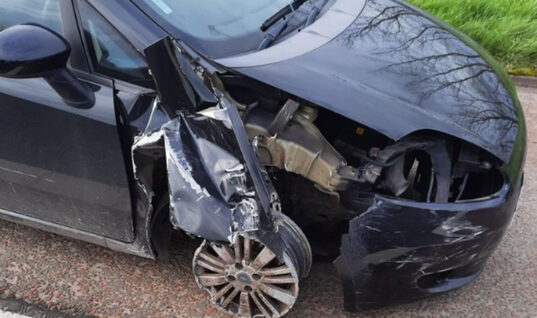Fully self-driving cars will not be ready for Britain’s roads until 2035 at the earliest, according to a report, following Government commitments to introduce them by 2021.
A study has said automated taxis capable of operating in ring-fenced areas in towns and cities could be ready by the 2021 deadline.
But it said fully automated cars without steering wheels that are able to drive freely on any roads are unlikely to be released before 2035.
The study, commissioned by the Society of Motor Manufacturers and Traders, cited the difficulty equipping automated vehicles with the technology to ‘tackle all possible unusual driving situations under all driving conditions and in all environments’.
Crashes
Several crashes involving cars in self-driving mode – including a pedestrian killed by an automated Uber in the US – have raised concerns that this technology is too risky and is being rushed out too quickly.
But the report, carried out by consultants Frost and Sullivan, made it clear that the road to full automation is likely to be ‘reached gradually’.
Economic boost
It said that the benefits of increased automation will be huge, boosting the economy, cutting congestion and increasing the average speed of vehicles by a fifth by 2030.
Every commuter who drives into work would save almost 42 hours of travel time every year – the equivalent of a full working week, it claimed.
Workforce productivity is also set to ‘surge’ as commuters spend their travelling time working instead of at the wheel.
UK world leader
The report claimed the UK could be the world’s number one location for rolling out driverless car technology and could gain an annual economic boost worth £62 billion.
It said Government-backed trials of self-driving cars means Britain has a head start over many other countries, and that the development of these vehicles could lead to 420,000 new jobs and save 3,900 lives by 2030.
But it warned that sustained support from the Government including updating road traffic laws and improving 4G coverage across road networks will be vital to realising the country’s potential.
It also cautioned that a ‘no deal’ Brexit could thwart these ambitions.
SMMT chief executive Mike Hawes said: “A transport revolution stands before us and the UK is in pole position in this £62 billion race.”
He added: “Brexit has undermined our global reputation [and] continues to devour valuable time and investment.
“We need no deal categorically ruled out and a future relationship agreed that reflects the integrated nature of our industry and delivers frictionless trade.”
Do driverless cars represent a benefit to garages with increased work productivity or are they a threat? Do technicians need more support to be trained in the tech in time? Let us know in the comments.







